Crohn's disease (cd) is a chronic, progressive, idiopathic inflammatory di expiration date 075 view activity exocrine pancreatic insufficiency (epi), a frequent but commonly underdiag If you're stuck at home or want to keep a consistent eye on your health, here is a list of the best blood pressure monitors to give you peace of mindLearn about Exocrine Pancreatic Insufficiency (EPI) EPI is the medical term for a condition that occurs when the pancreas doesn't produce enough digestive enzymes As a result, the body cannot properly digest food into nutrients, which can lead to malabsorption 2I was diagnosed with endocrine pancreatic insufficiency EPI after having a reaction to estrogen cream and 2weeks later a reaction to reclast infusion a BISPHOSPHONATEdr didn't check my chart for allergy to phosphates nor tell me to have any invasive dental work done first i had diarrhea for over 0 days lost from 130 to 103 lbs my teeth have started to break off i have

Exocrine Pancreatic Insufficiency What It Is And Who S At Risk
Exocrine pancreatic insufficiency (epi) test
Exocrine pancreatic insufficiency (epi) test-Little (or no) elastase can indicate EPI Fecal fat test to measure the amount of fat in stool A high fat volume may be a sign of EPI Secretin pancreatic function test to test how the pancreas responds to secretin, a hormone that triggers the release of digestive enzymesThis test measures the amount of elastase, an enzyme produced by the pancreas, in your stool A deficiency of elastase could be an indicator of EPI It may be harder to diagnose milder EPI using this test Your doctor may not use this test if you have diabetes




Pdf Romanian Guidelines On The Diagnosis And Treatment Of Exocrine Pancreatic Insufficiency Mircea Diculescu And Bogdan Mateescu Academia Edu
Diagnosing EPI If you have exocrine pancreatic insufficiency (EPI), your body cannot properly digest fats, proteins, and carbohydrates in the food you eat In addition to preventing adequate digestion, EPI produces uncomfortable gastrointestinal (GI) symptoms Only your doctor can tell if your GI symptoms are due to EPI or another digestive conditionEPI is largely a clinical diagnosis 14* EPI is largely a clinical diagnosis Patients with EPI may present with signs and symptoms similar to other GI disorders A careful workup is necessary when suspecting EPI and should include patient history, symptom assessment, and asking about underlying conditions It's also important to get specific details about GI issues, includingWhat is exocrine pancreatic insufficiency (EPI)?
How do doctors diagnose Exocrine Pancreatic Insufficiency or EPI?Doctors usually diagnose EPI using a fecal elastase testElastase is an enzyme made by the pancreas that helps down essential nutrients like fats, proteins, and carbohydrates after you eatExocrine pancreatic insufficiency (EPI) is a condition characterized by deficiency of the exocrine pancreatic enzymes, resulting in the inability to digest food properly, or maldigestion The etiology of this deficiency includes pancreatic and
How do doctors diagnose Exocrine Pancreatic Insufficiency or EPI?How do we test for exocrine pancreatic insufficiency?Key clinical point The prevalence of exocrine pancreatic insufficiency (EPI) was higher in patients with functional dyspepsia (FD) with pancreatic enzyme abnormalities (PEA) compared to asymptomatic patients (AP) with PEA and was associated with physical function but not with the state of anxiety Major finding The prevalence of EPI was higher in patients with FD



1




Exocrine Pancreatic Insufficiency Epi And The Cavalier King Charles Spaniel
Stocksy Exocrine pancreatic insufficiency ( EPI ) is a disorder caused by a lack of certain digestive enzymes, which are needed to extract important nutrients fromSimple blood and fecal tests can accurately detect if the condition is present Canine trypsinogenlike immunoassay (cTLI) is the preferred diagnostic test for EPI cTLI in combination with Vitamin B12 and folate level tests gives the best assessment of your pet's pancreatic functionExocrine pancreatic insufficiency (EPI) is a medical condition that affects the exocrine function of the pancreas With EPI, there are not enough pancreatic enzymes that are critical to the normal digestion of fats, as well as proteins and carbohydrates




Diagnosing And Treating Exocrine Pancreatic Insufficiency Mpr




Exocrine Pancreatic Insufficiency Mission Cure
There's no cure for exocrine pancreatic insufficiency (EPI), a chronic condition characterized by an inability to digest certain nutrients, especially fat But EPI can be managed with a type of medication called pancreatic enzyme replacement therapy (PERT), which consists of enzymes that aid digestionMany disorders and conditions that result in malabsorption of nutrients or maldigestion of your food are caused by something going wrong with your stomach or small intestine EPI, on the other hand, is a result of a problem with the oftenoverlooked pancreasPancreatic insufficiency (EPI) is a condition that occurs when the pancreas does not produce enough specific enzyme that the body uses to digest food in the small intestine Receive all our future posts instantly in your inbox




Know More About Exocrine Pancreatic Insufficiency Epi Therapeutics And Diagnostics Market By Manufacturers Regions Type And Application Forecast To 23 Medgadget




What Is Exocrine Pancreatic Insufficiency Ben S Natural Health
Abstract Exocrine pancreatic insufficiency (EPI) is a condition caused by reduced or inappropriate secretion or activity of pancreatic juice and its digestive enzymes, pancreatic lipase in particular EPI can result in clinical manifestation and biochemical alterations causing reduced quality of life and lifethreating complicationsEPI can make mealtime difficult EPI is when someone can't digest their food normally because their pancreas isn't making enough enzymes The enzymes help break down the food you eat so it can be absorbed into your body If your body isn't making enough pancreatic enzymes, this can result in not being able to digest food properly, or maldigestionExocrine Pancreatic Insufficiency (EPI)?




Pdf Poor Diagnostic Values Of Stool Analysis And Steatocrit Test In Detecting Exocrine Pancreatic Insufficiency Semantic Scholar
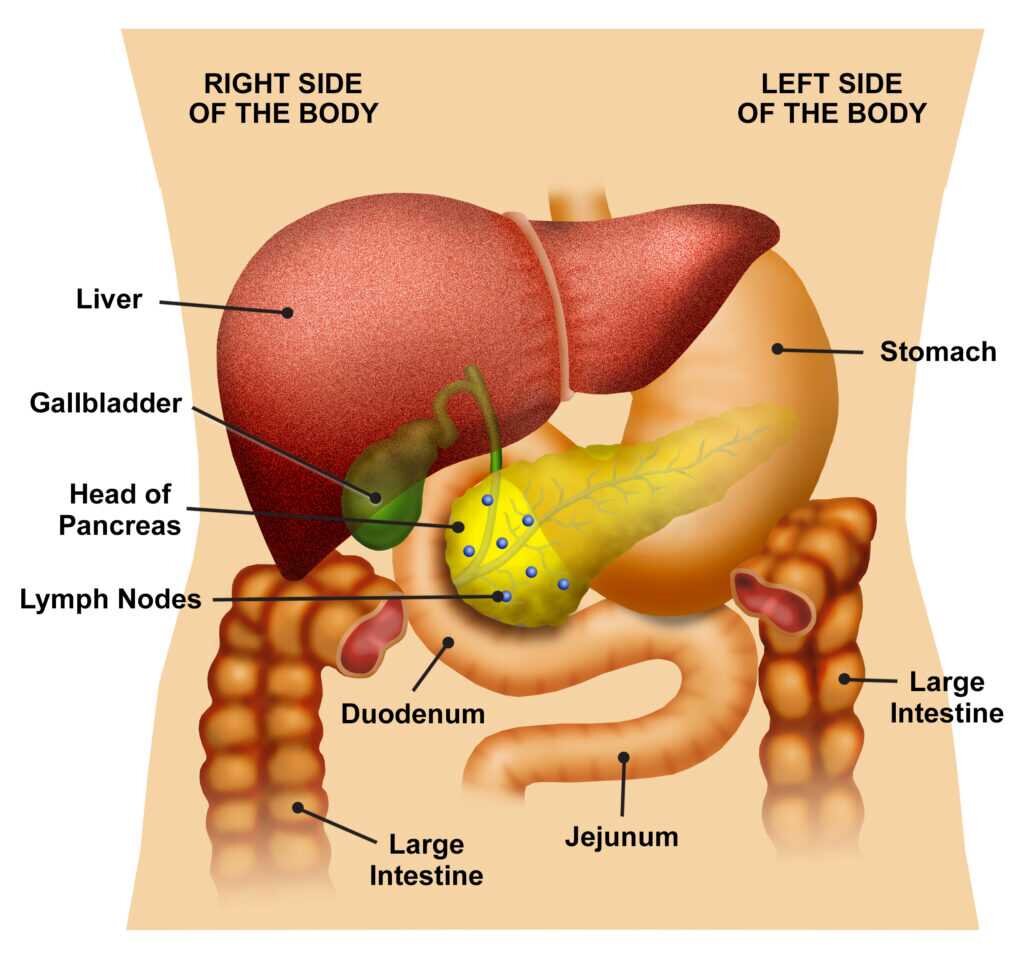



Exocrine Pancreatic Insufficiency When Digestion Fails Hive Mind Medicine
Exocrine Pancreatic Insufficiency (EPI) Diagnosis EPI is a condition that sometimes can be overlooked 2 Primary care doctors may be able to diagnose EPI and provide treatment optionsDiagnosis is made by measurement of serum trypsinlike immunoreactivity Treatment includes supplementation of pancreatic digestive enzymes and cobalamin Exocrine pancreatic insufficiency (EPI) is a syndrome caused by insufficient synthesis and secretion of digestive enzymes by the exocrine portion of the pancreasStool elastase —this test measures the level of elastase (an enzyme made by the pancreas) in a sample of your stool The amount of this enzyme is reduced in pancreatic insufficiency This test is more effective at detecting moderate to severe EPI than milder cases




Pancreatic Exocrine Insufficiency Pei And Pancreatic Enzyme Replacement Therapy Pert Guts Uk
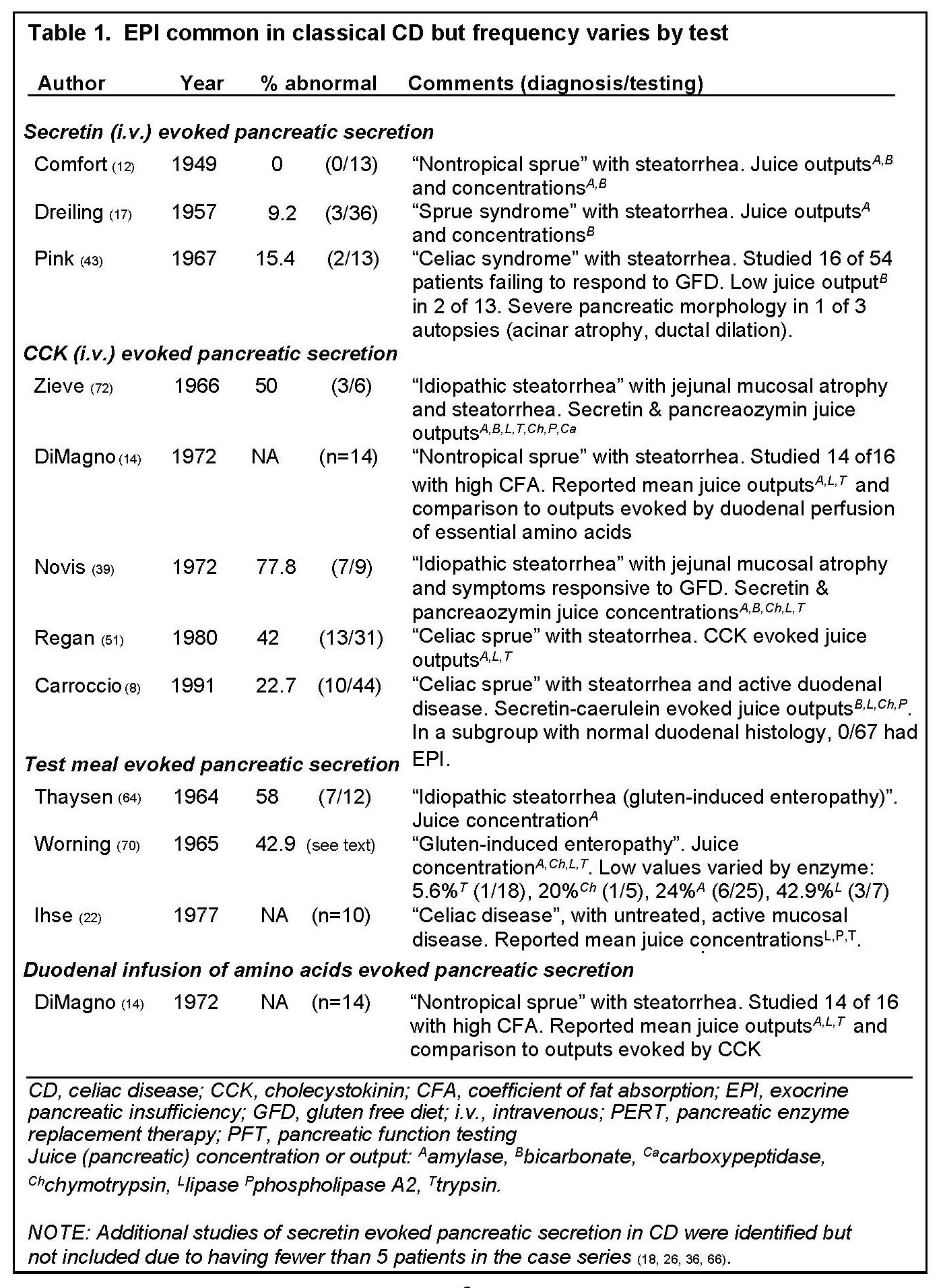



Exocrine Pancreatic Insufficiency And Pancreatitis Associated With Celiac Disease Pancreapedia
Myth Routinely checking for EPI in patients with chronic diarrhea, using fecal elastase, is a useful and effective diagnostic approach with values 100–0 μg/g of stool reflecting mild to moderate pancreatic insufficiency and 100 μg/g of stool indicating severe EPIDoctors usually diagnose EPI using a fecal elastase test Elastase is an enzyme made by the pancreas that helps down essential nutrients like fats, proteins, and carbohydrates after you eat If little or no elastase is found in the stool, it might mean the enzyme is not workingExocrine Pancreatic Insufficiency (EPI) Therapeutics And Diagnostics Market was valued at USD 416 Billion in 19 and is projected to reach USD 710 Billion by 27, growing at a CAGR of 70% from to 27




Practical Guide To Exocrine Pancreatic Insufficiency Breaking The Myths Topic Of Research Paper In Clinical Medicine Download Scholarly Article Pdf And Read For Free On Cyberleninka Open Science Hub
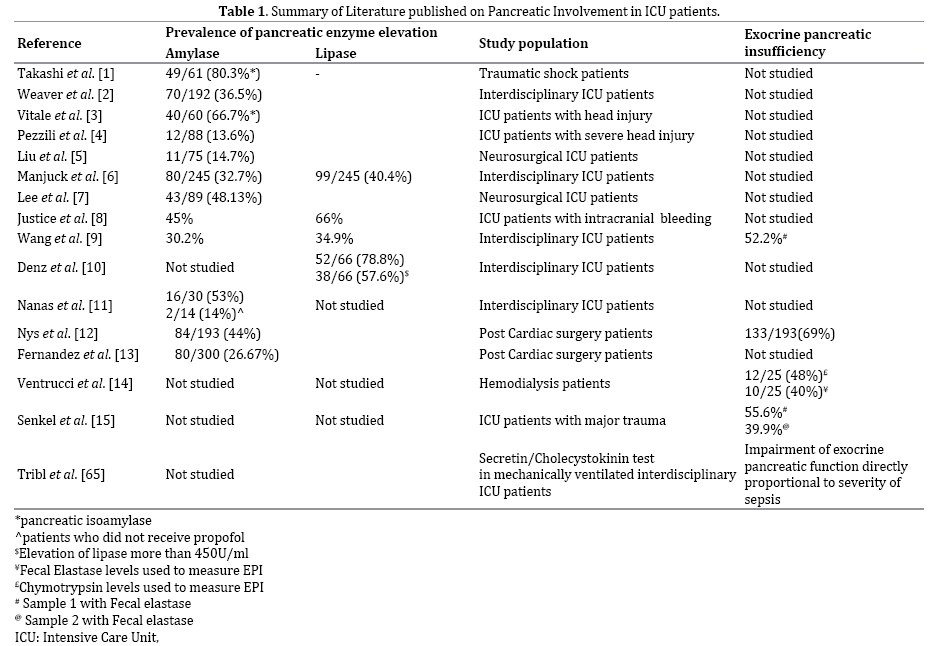



Pancreatic Involvement In Critically Ill Patients Insight Medical Publishing
Exocrine pancreatic insufficiency (EPI) is defined by a deficiency of exocrine pancreatic enzymes resulting in an inability to maintain normal digestion This inadequate digestion with nutrient and, especially, fat malabsorption occurs when intraduodenal levels of lipase fall below 5–10% of normal enzyme output 1 , leading to pancreatic steatorrhea, weight loss, and aThe sensitivity of FE1 for mild, moderate, and severe EPI in patients with CP is 63%, 100%, and 100%, respectively Fecal elastase has a specificity of 93% in patients with EPI50,52 Two commercially ELISAs are available for the measurement of FE1 respectively using a monoclonal and polyclonal antibodyKey clinical point High prevalence of exocrine pancreatic insufficiency (EPI)related fat malabsorption was observed in Asian Indian patients with type 2 diabetes mellitus (T2DM), which was significantly associated with autonomic dysfunction Major finding EPIrelated fat malabsorption (72 hours fecal fat >




Understanding Exocrine Pancreatic Insufficiency Epi Health Beat




Endoscopic Pancreatic Function Testing Naspghan Position Paper Gutsandgrowth
Background and aims EUS and endoscopic pancreatic function tests (ePFTs) may be used to diagnose minimal change chronic pancreatitis (MCCP) The impact of evaluation for exocrine pancreatic insufficiency (EPI) and realtime assessment of EUS changes after intravenous secretin on the clinical diagnosis of MCCP is unknownEPI is a longlasting medical condition that affects the pancreas EPI upsets the way the body breaks They do many of the tests used to diagnose conditions related to the pancreas, including EPI Only a doctor can decide if EPIM Elena Gorman, in Small Animal Pediatrics, 11 Decreased Pancreatic Enzyme Activity Exocrine pancreatic insufficiency (EPI) has been shown to occasionally result in decreased values of amylase and lipase However, because these enzymes are not tissue specific, their production by other tissues may actually result in values within normal reference ranges




A Primer On Exocrine Pancreatic Insufficiency Fat Malabsorption And Fatty Acid Abnormalities
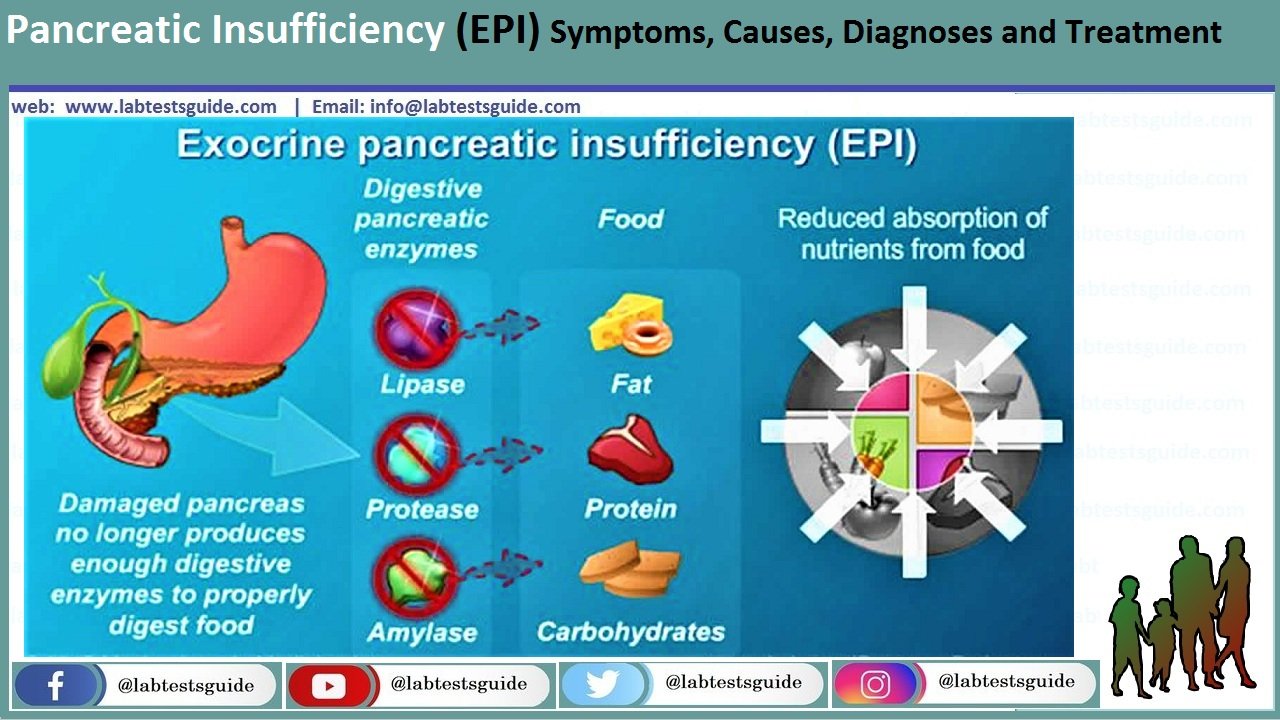



Pancreatic Insufficiency Epi Symptoms Causes Diagnoses And Treatment Lab Tests Guide
The exocrine pancreas secretes zymogens and active enzymes that, ultimately, aid in digestion Exocrine pancreatic insufficiency (EPI) is a condition of maldigestion and usually doe not involve the endocrine pancreas In this article, we review the etiologic factors, diagnostic tools, and management recommendations for dogs with EPIThis is the definitive test for diagnosing Exocrine Pancreatic Insufficiency in cats The test will also measure levels of vitamin B12 Most cats suffering from exocrine pancreatic insufficiency are also deficient in this vitamin Finally, if your cat is found to be suffering from exocrine pancreatic insufficiency, your veterinarian may also want to run additional tests to confirm whether your catDiagnosing EPI in Dogs and Cats A blood serum TLI test (trypsinlike immunoreactivity) showing a concentration of ≤25 mcg/L in dogs or ≤80 mcg/L in cats means they have Exocrine Pancreatic Insufficiency There is also a test for the presence of a pancreatic enzyme called elastase in the stool
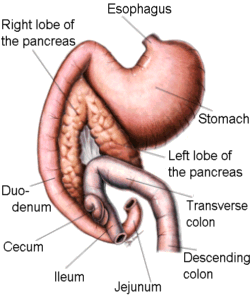



Exocrine Pancreatic Insufficiency Epi And The Cavalier King Charles Spaniel




Exocrine Pancreatic Insufficiency Clinical Gastroenterology And Hepatology
Exocrine pancreatic insufficiency or EPI is a term that describes a condition in which a person's pancreas is unable to produce and/or secrete normal levels of enzymes into the gastrointestinal track resulting in the inability of the person to digest and thus absorb some fats, vitamins, and minerals from foods (maldigestion) The exocrine (secreted) enzymes made by the18 g) was present in 449% and 61% of patients with andEPI in dogs represents a welldefined condition that can now be diagnosed simply by the analysis of a single serum sample for TLI A low TLI concentration represents a highly sensitive and specific test for EPI and may also predict the development of disease before the onset of clinical signs A lack of pancreatic enzymes results in
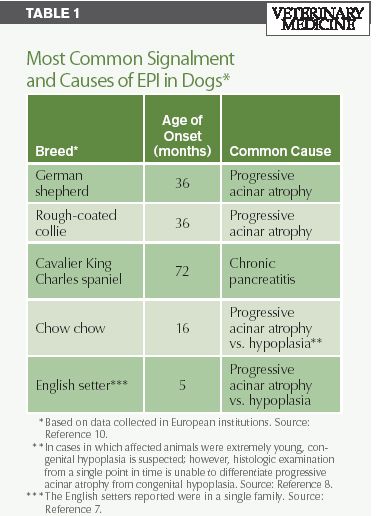



A Quick Review Of Canine Exocrine Pancreatic Insufficiency
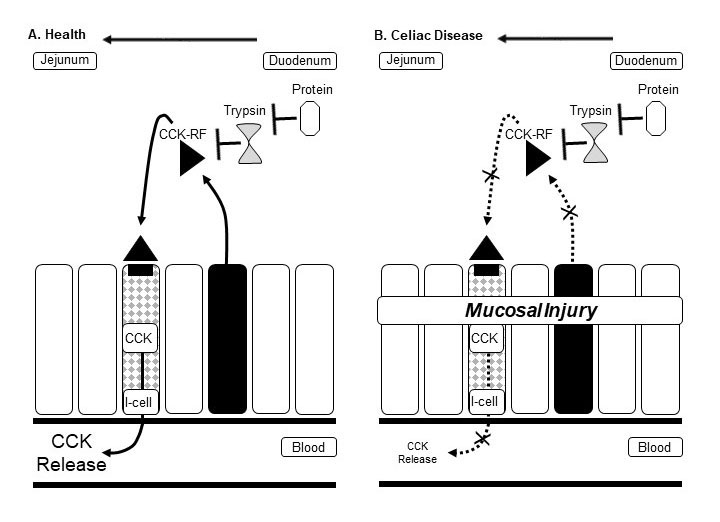



Exocrine Pancreatic Insufficiency And Pancreatitis Associated With Celiac Disease Pancreapedia
When the pancreas doesn't produce enough enzymes, it can create symptoms that mimic irritable bowel syndrome Dr Alejandro Suarez says it's really EPIExocrine pancreatic insufficiency (EPI) occurs when your pancreas can't make or release enough digestive enzymes to break down food and absorb nutrients Fat digestion is impacted the most AsThe three main EPI diagnosis tests measure the amount of pancreatic enzymes in stool (fecal elastase), the amount of fat in the stool, or the exocrine function of the pancreas




Exocrine Pancreatic Insufficiency Insights
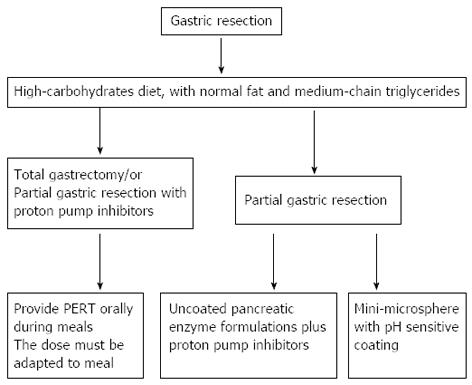



Exocrine Pancreatic Insufficiency In Adults A Shared Position Statement Of The Italian Association For The Study Of The Pancreas
Exocrine pancreatic insufficiency (EPI) causes problems in how you digest food Your pancreas doesn't make enough of the enzymes that your body needs to




Symptoms Of Exocrine Pancreatic Insufficiency Epi Treatment



Dogaware Com Articles Epi Exocrine Pancreatic Insufficiency In Dogs




Pdf Romanian Guidelines On The Diagnosis And Treatment Of Exocrine Pancreatic Insufficiency Mircea Diculescu And Bogdan Mateescu Academia Edu
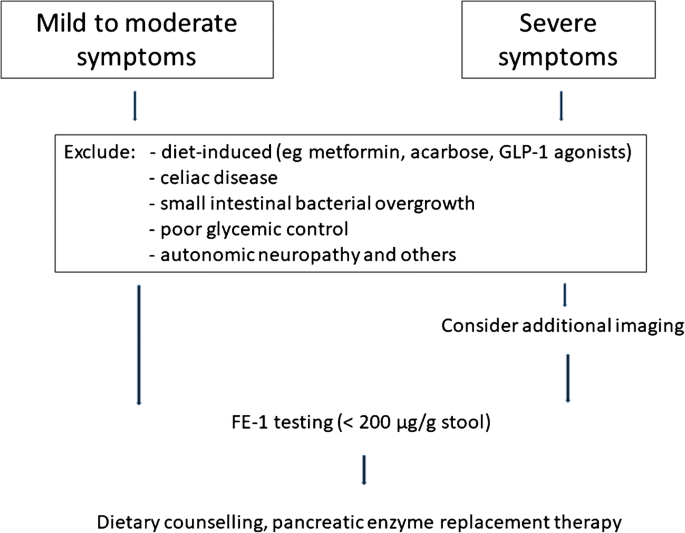



Exocrine Pancreatic Insufficiency In Type 1 And Type 2 Diabetes Springerlink




Introduction And Practical Approach To Exocrine Pancreatic Insufficiency For The Practicing Clinician Othman 18 International Journal Of Clinical Practice Wiley Online Library
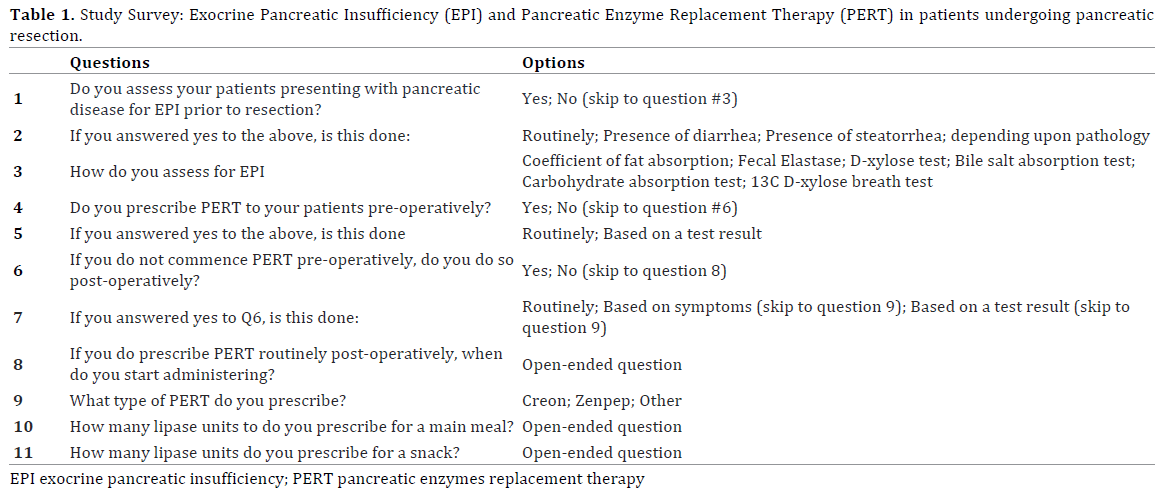



Perioperative Exocrine Pancreatic Insufficiency And Pancreatic Enzyme Replacement Therapy Insight Medical Publishing




Veterinary Partner Vin




Eus Pancreatic Function Testing And Dynamic Pancreatic Duct Evaluation For The Diagnosis Of Exocrine Pancreatic Insufficiency And Chronic Pancreatitis Gastrointestinal Endoscopy




Dr Jean Dodds Pet Health Resource Blog Exocrine Pancreatic Insufficiency In Dogs And Cats
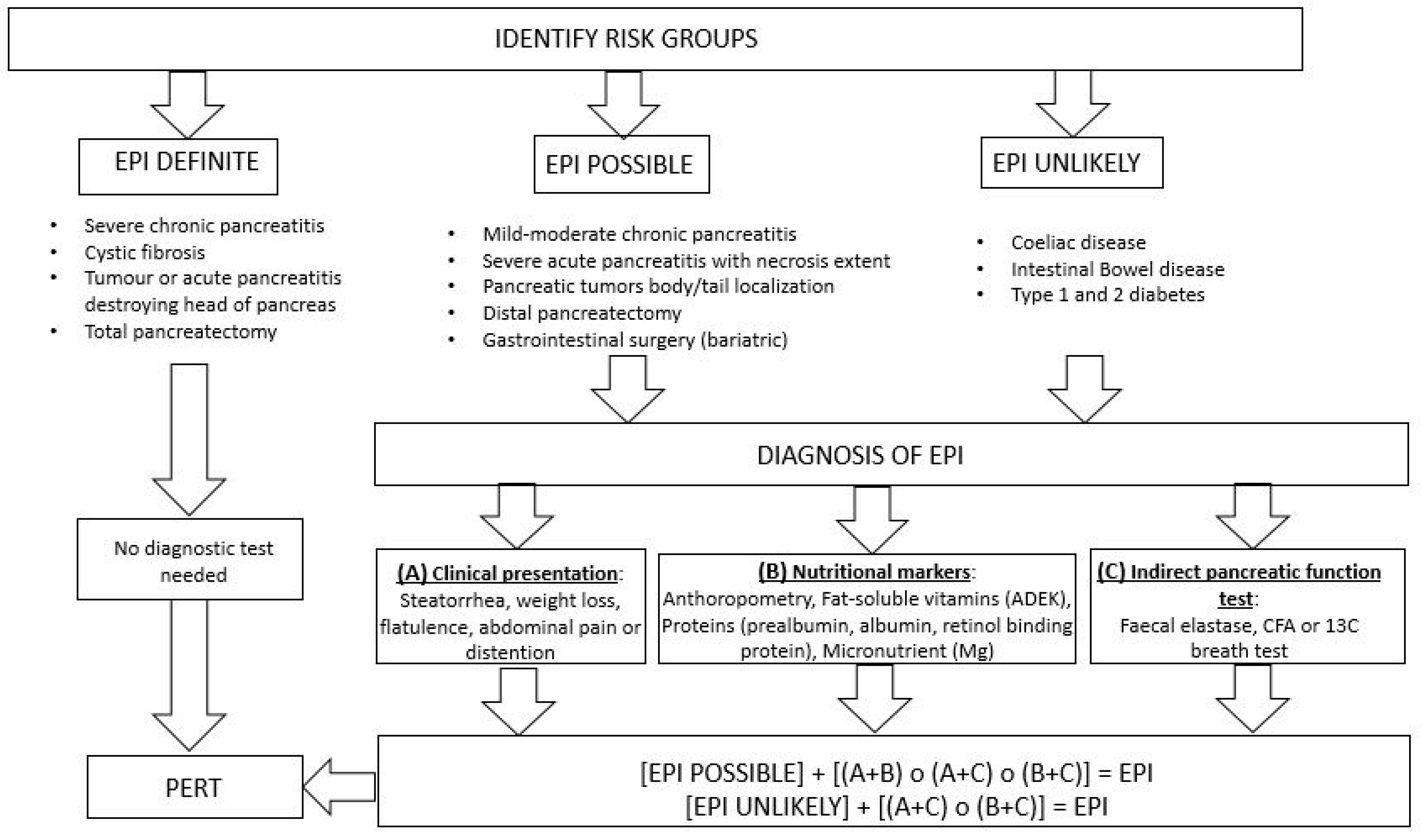



Medicina Free Full Text State Of The Art In Exocrine Pancreatic Insufficiency Html




Indirect Diagnostic Tests For Evaluating Pancreatic Exocrine Insufficiency Download Table




Human Pancreatic Exocrine Response To Nutrients In Health And Disease Gut




Diagnostic Performance Of Measurement Of Fecal Elastase 1 In Detection Of Exocrine Pancreatic Insufficiency Systematic Review And Meta Analysis Clinical Gastroenterology And Hepatology




Symptoms Of Exocrine Pancreatic Insufficiency Everyday Health




Diagnosing Exocrine Pancreatic Insufficiency Everyday Health




3 Ways To Diagnose Exocrine Pancreatic Insufficiency Wikihow
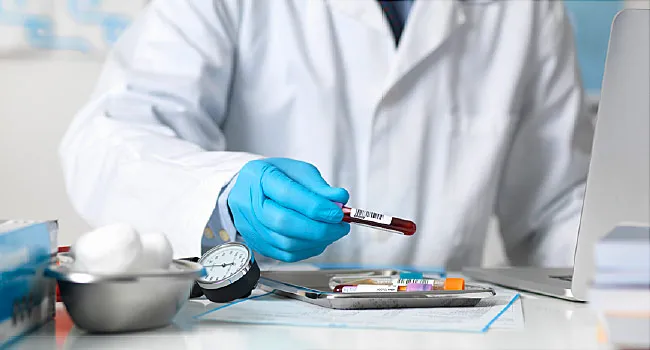



Exocrine Pancreatic Insufficiency Getting A Diagnosis




3 Ways To Diagnose Exocrine Pancreatic Insufficiency Wikihow




Exocrine Pancreatic Insufficiency Market Epi Market




Diagnosis Exclusion Of Canine Exocrine Pancreatic Insufficiency Epi




Epi Exocrine Pancreatic Insufficiency Symptoms Treatment And More




First Cf Patients Enrolled Dosed In Azurrx S Phase 2b Trial Of Ms1819
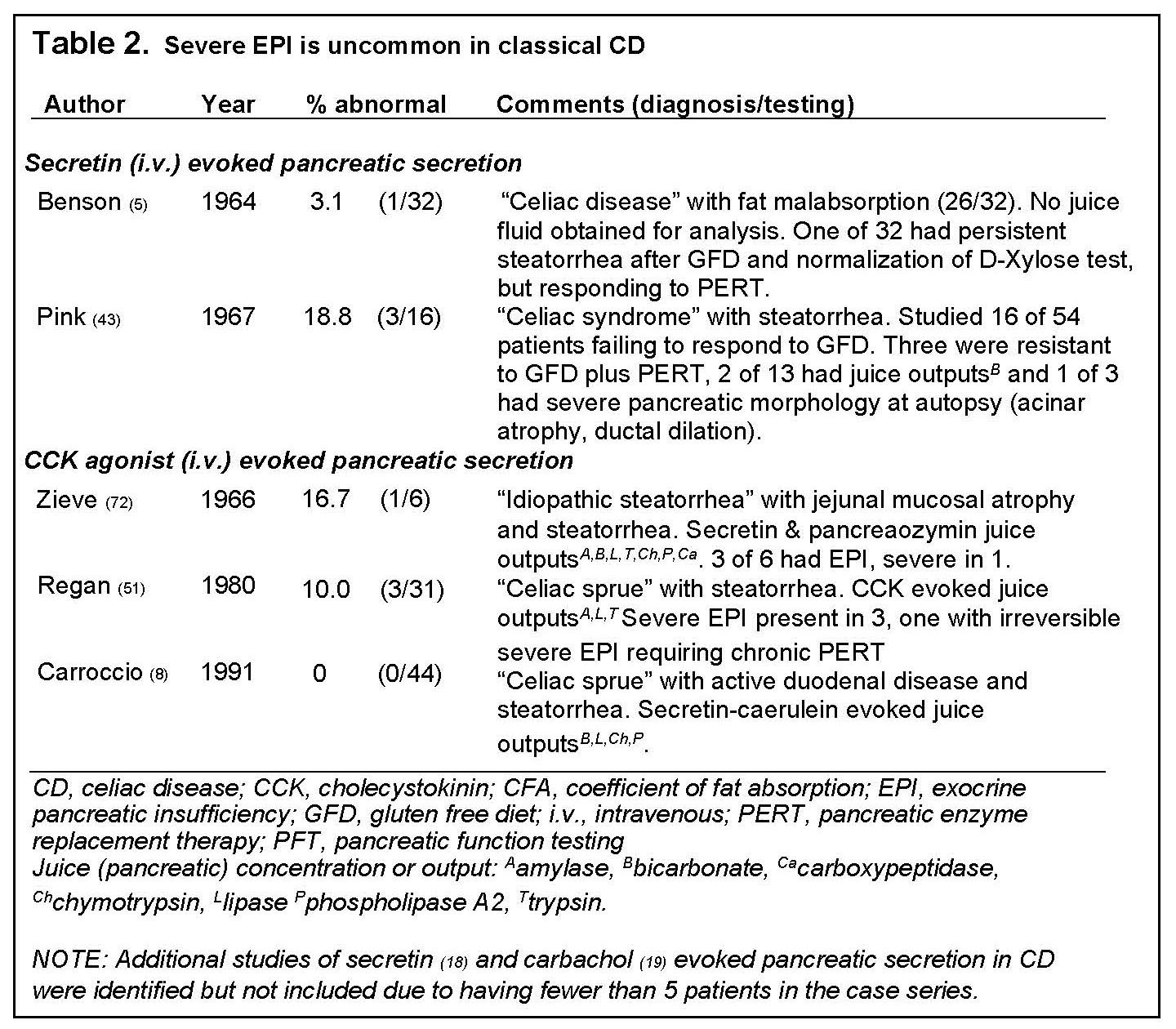



Exocrine Pancreatic Insufficiency And Pancreatitis Associated With Celiac Disease Pancreapedia




Introduction And Practical Approach To Exocrine Pancreatic Insufficiency For The Practicing Clinician Othman 18 International Journal Of Clinical Practice Wiley Online Library




Pdf Pancreatic Exocrine Insufficiency Diagnosis And Treatment In Chronic Pancreatitis And Pancreatic Cancer Semantic Scholar




Diagnosis And Management Of Exocrine Pancreatic Insufficiency Semantic Scholar




Exocrine Pancreatic Insufficiency Epi Therapeutics Market New Business Opportunities And Investme By Ravikiran12 Issuu




Efficacy And Safety Of Pancreaze For Treatment Of Exocrine Pancreatic Insufficiency Due To Cystic Fibrosis Journal Of Cystic Fibrosis




Diagnosis Exclusion Of Canine Exocrine Pancreatic Insufficiency Epi




Algorithm For The Diagnosis And Treatment Of Exocrine Pancreatic Download Scientific Diagram




Quiz Worksheet Exocrine Pancreatic Insufficiency Study Com
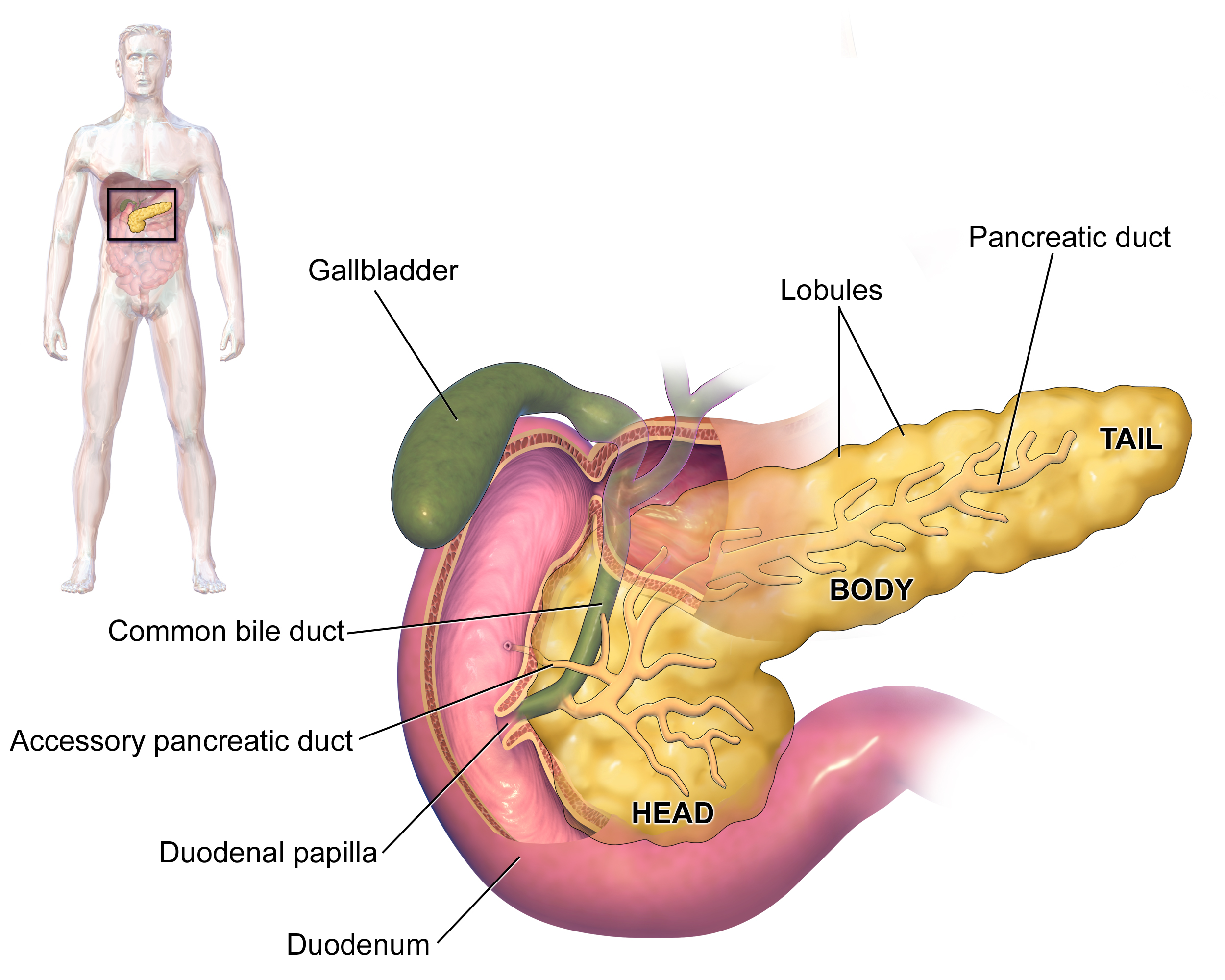



Exocrine Pancreatic Insufficiency Wikipedia




Epi Symptoms Bloating Diarrhea And More
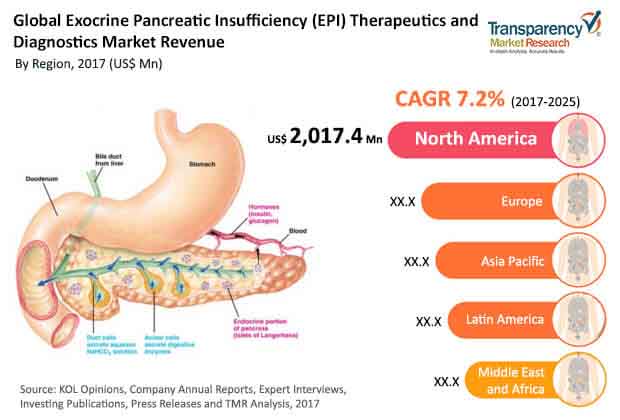



Exocrine Pancreatic Insufficiency Epi Therapeutics And Diagnostics Market Share Demand Insights And Forecast Up To 25 Teletype




Transient Exocrine Pancreatic Insufficiency First Report Of An Unrecognized Complication Of Cytoreductive Surgery And Hipec Anticancer Research




Exocrine Pancreatic Insufficiency In Dogs Whole Dog Journal
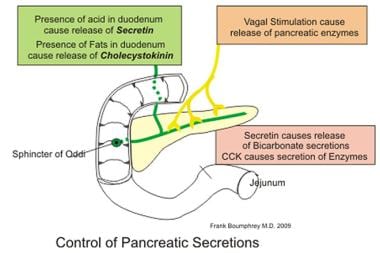



Exocrine Pancreatic Insufficiency Practice Essentials Anatomy Pathophysiology




Symptoms And Tests Used In The Diagnosis Of Exocrine Pancreatic Download Table




What You Should Know About Exocrine Pancreatic Insufficiency Epi Ariel Insights




Pdf Pancreatic Enzyme Replacement Therapy Exocrine Pancreatic Insufficiency After Gastrointestinal Surgery Semantic Scholar



1




Diagnosis Exclusion Of Canine Exocrine Pancreatic Insufficiency Epi




Epi Exocrine Pancreatic Insufficiency Symptoms Treatment And More



3
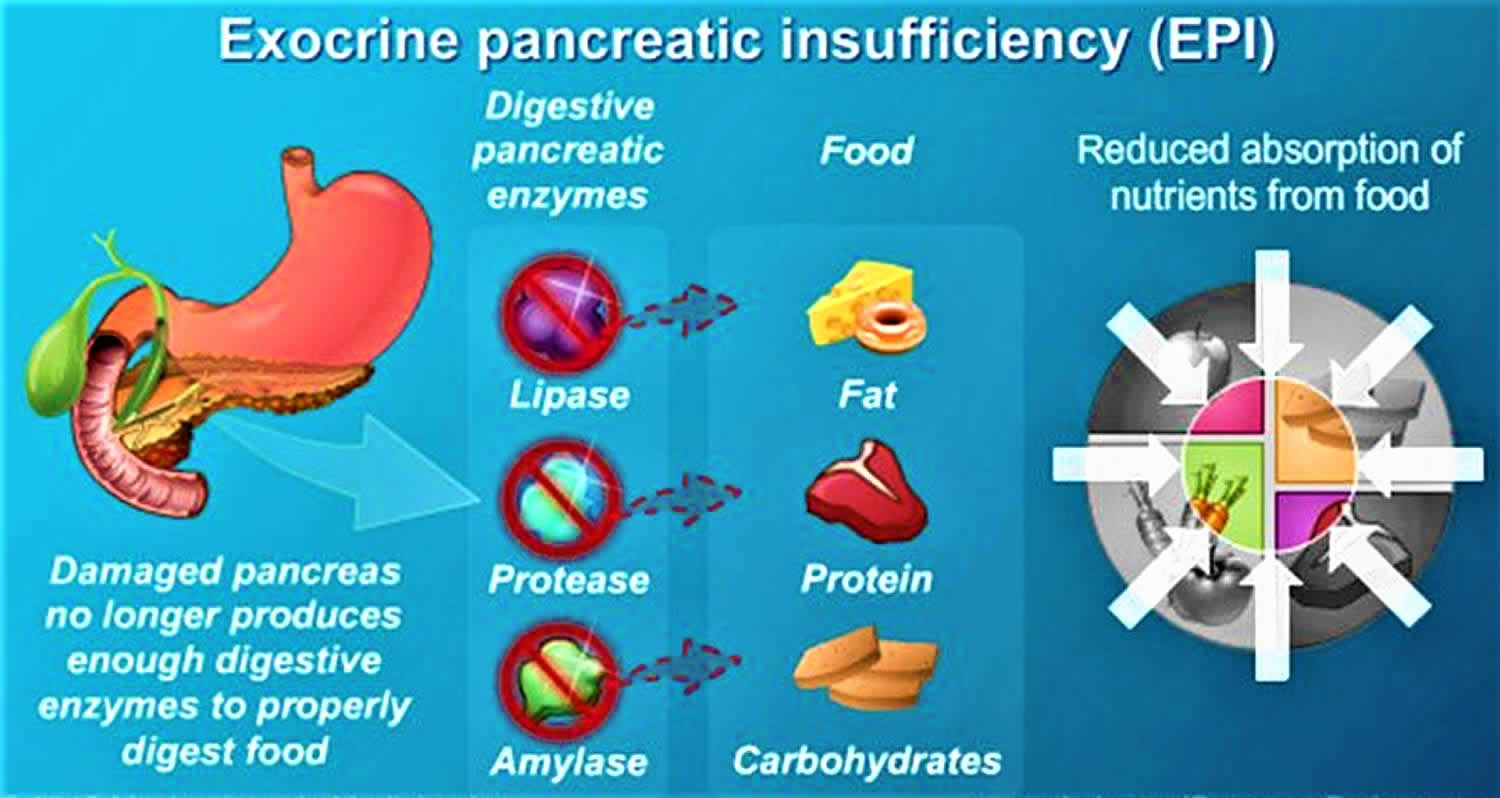



Exocrine Pancreatic Insufficiency Causes Symptoms Diagnosis Treatment
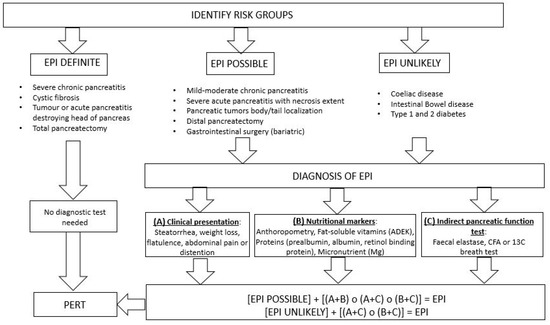



Medicina Free Full Text State Of The Art In Exocrine Pancreatic Insufficiency Html




Exocrine Pancreatic Insufficiency Epi Therapeutics And Diagnostics Market
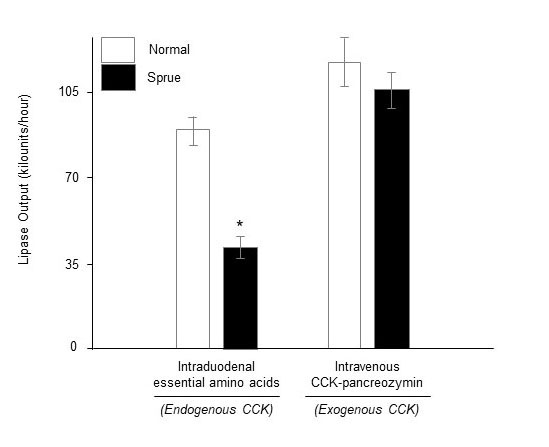



Exocrine Pancreatic Insufficiency And Pancreatitis Associated With Celiac Disease Pancreapedia




Exocrine Pancreatic Insufficiency What It Is And Who S At Risk




Exocrine Pancreatic Insufficiency Prevalence Diagnosis And Manageme Ceg




Exocrine Pancreatic Insufficiency In Dogs Vca Animal Hospital




What Is Exocrine Pancreatic Insufficiency Everyday Health
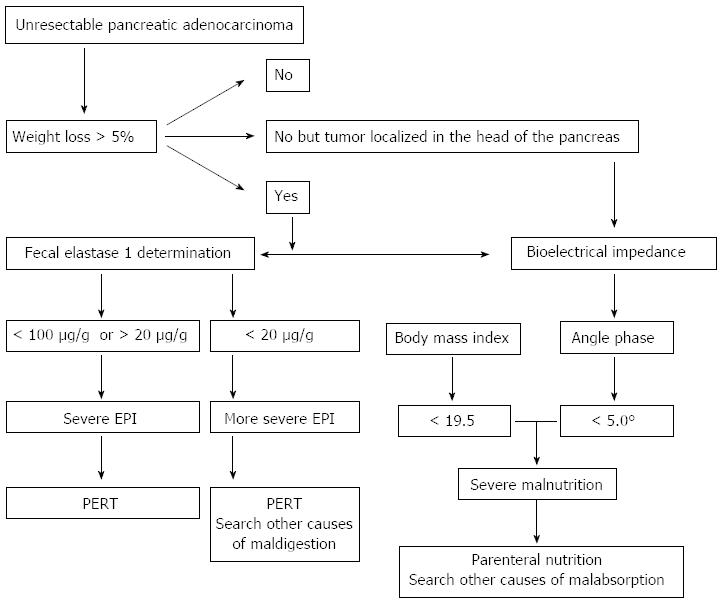



Exocrine Pancreatic Insufficiency In Adults A Shared Position Statement Of The Italian Association For The Study Of The Pancreas




Exocrine Pancreatic Insufficiency Epi Diagnosis Epi Test




Exocrine Pancreatic Insufficiency Epi




Indirect Diagnostic Tests For Evaluating Pancreatic Exocrine Insufficiency Download Table
/exocrine-pancreatic-insufficiency-4177936-821-618578bea845406fa96c78167aff8657.png)



Exocrine Pancreatic Insufficiency Symptoms Causes And Diagnosis



2




Faecal Pancreatic Elastase Test Gastrolife
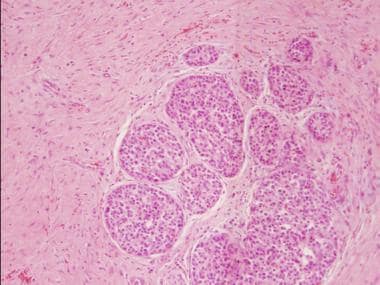



What Are Pancreatic Causes Of Exocrine Pancreatic Insufficiency Epi




Slide Show Exocrine Pancreatic Insufficiency Epi
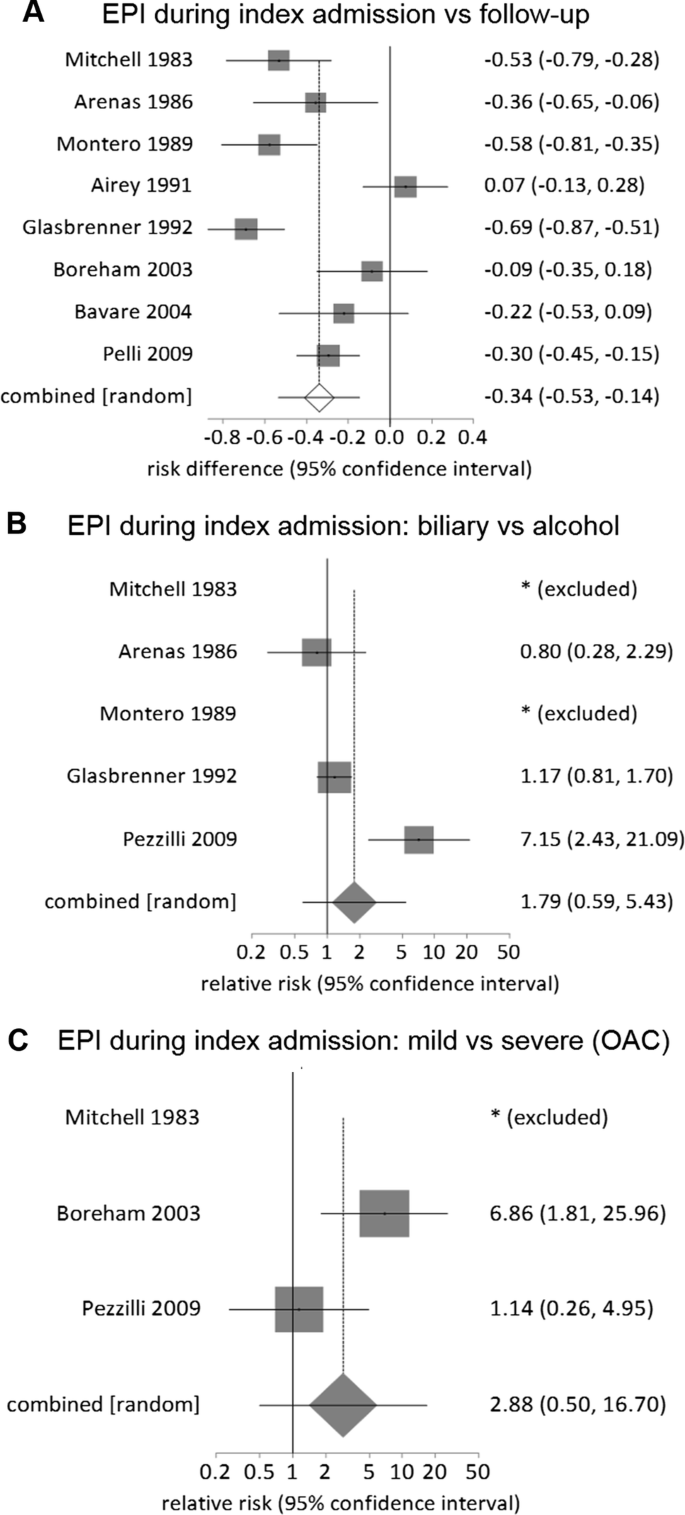



Exocrine Pancreatic Insufficiency Following Acute Pancreatitis Systematic Review And Meta Analysis Springerlink



Epi Exocrine Pancreatic Insufficiency A Lack Of Digestive Enzymes Criticalcaredvm
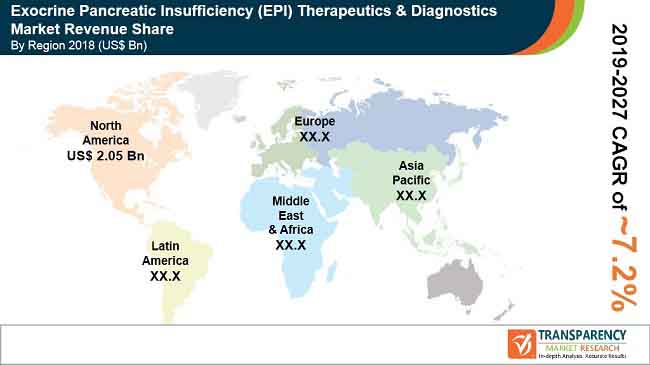



Exocrine Pancreatic Insufficiency Epi Therapeutics And Diagnostics Market Insight 27




Diagnosis Exclusion Of Canine Exocrine Pancreatic Insufficiency Epi
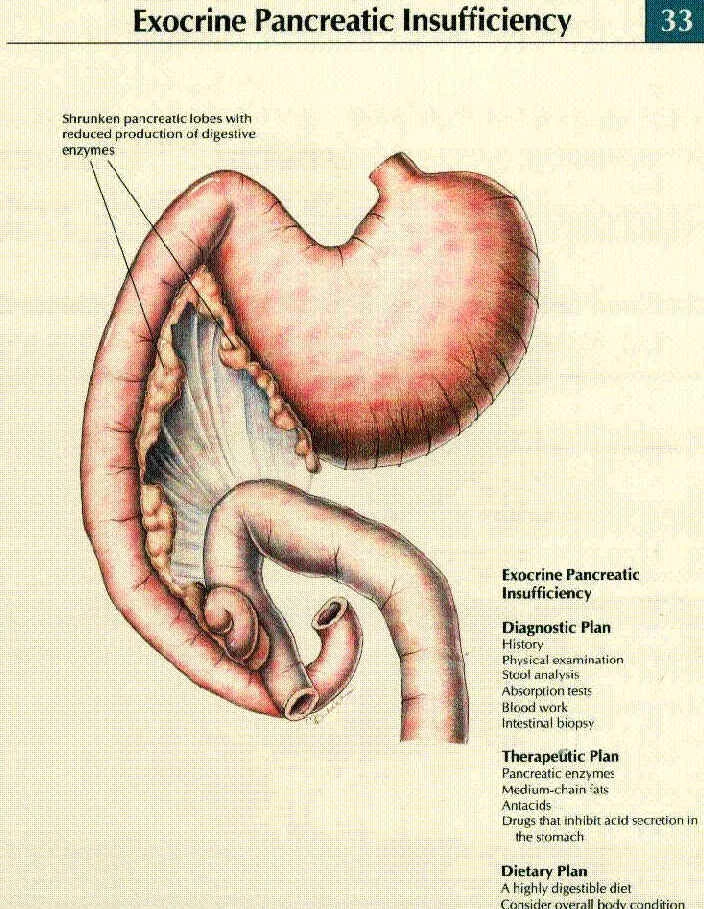



Exocrine Pancreatic Insufficiency Canine Diabetes Wiki Fandom




Is Epi Reversible




Exocrine Pancreatic Insufficiency
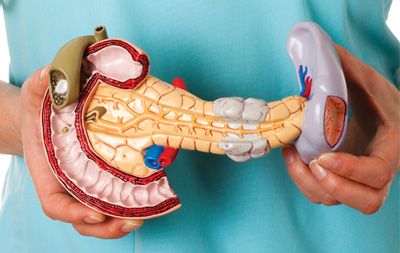



What Is Exocrine Pancreatic Insufficiency Pa Gi Pennsylvania Gastroenterology



Endoscopic Pancreatic Function Testing Epft In Children A Journal Of Pediatric Gastroenterology And Nutrition




Do You Have Epi Or Something Else Everyday Health



2




Current Challenges In Exocrine Pancreatic Insufficiency A Multi Perspective Discussion Transcript




Epi Exocrine Pancreatic Insufficiency Symptoms Treatment And More
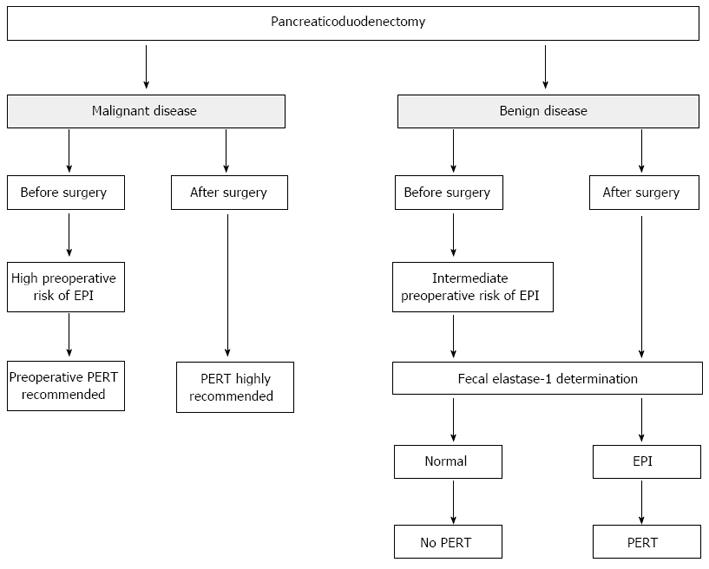



Exocrine Pancreatic Insufficiency In Adults A Shared Position Statement Of The Italian Association For The Study Of The Pancreas




Diagnosis Exclusion Of Canine Exocrine Pancreatic Insufficiency Epi Ppt Video Online Download



1




The Assessment Of Pancreatic Exocrine Function In Patients With Inoperable Pancreatic Cancer In Need Of A New Gold Standard Sciencedirect
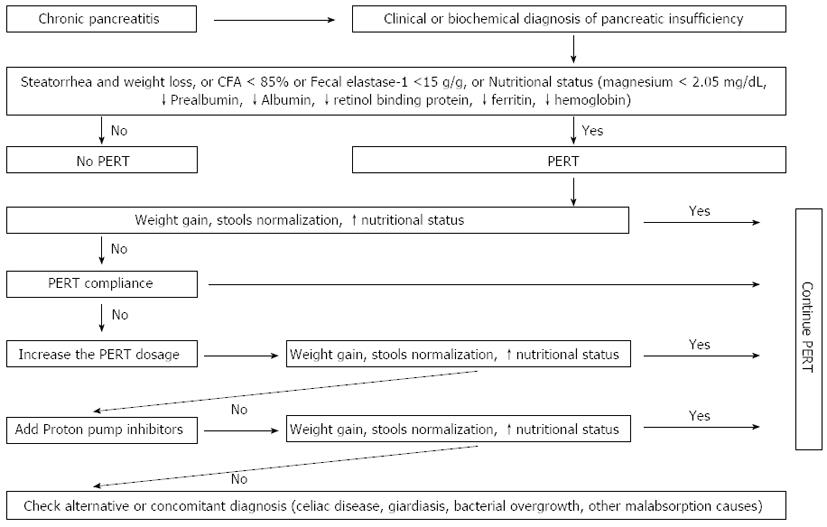



Exocrine Pancreatic Insufficiency In Adults A Shared Position Statement Of The Italian Association For The Study Of The Pancreas




Table 1 From Exocrine Pancreatic Insufficiency Semantic Scholar




Who S At Risk Of Exocrine Pancreatic Insufficiency Infographic Everyday Health




Exocrine Pancreatic Insufficiency Diagnosis And Management Youtube



0 件のコメント:
コメントを投稿